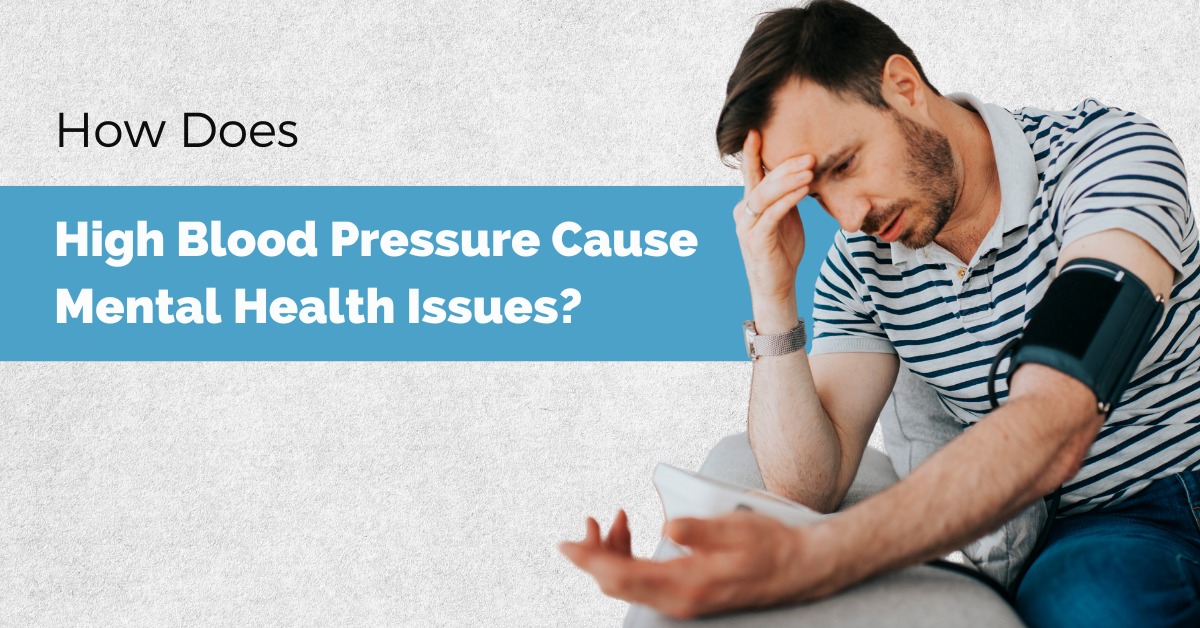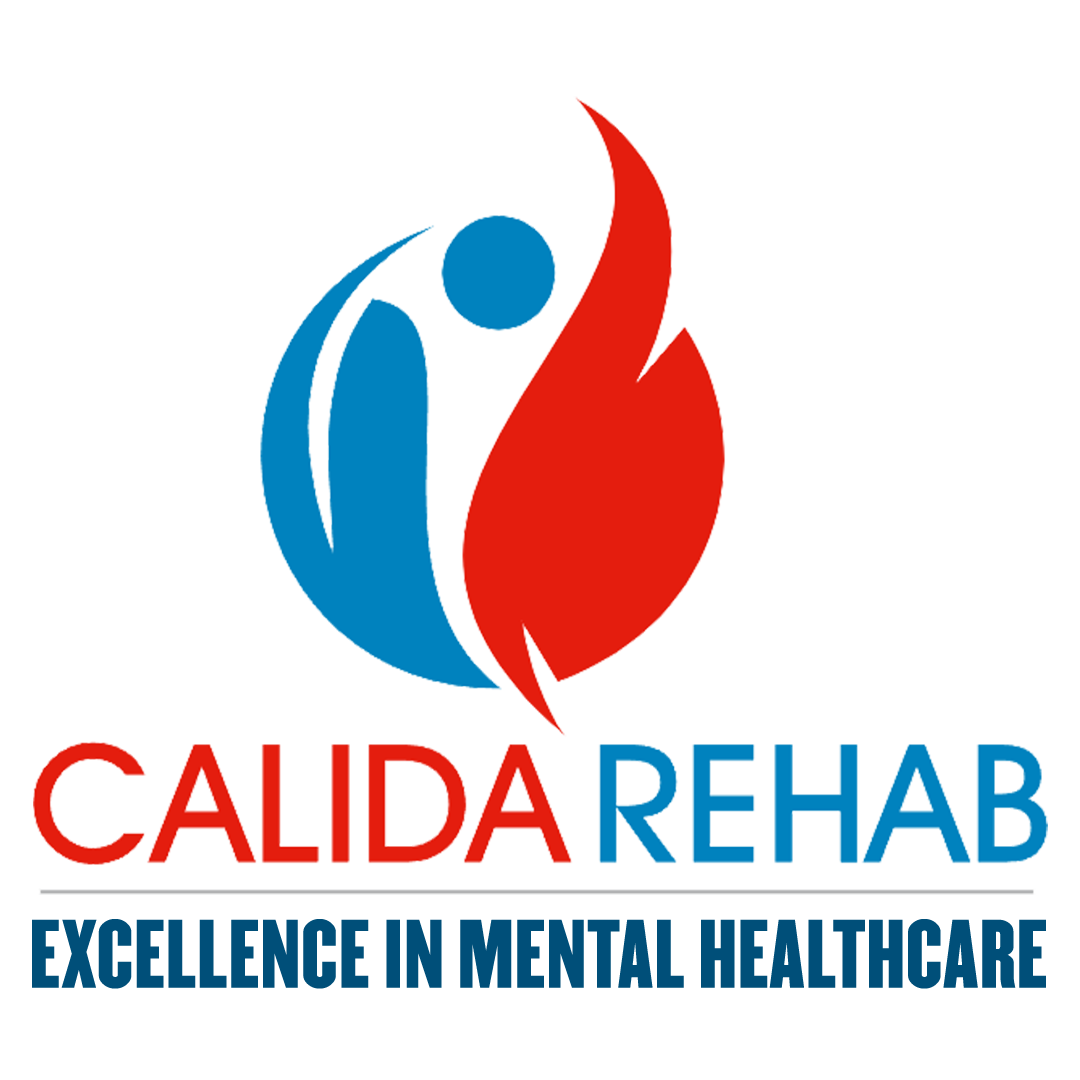
How Does High Blood Pressure Cause Mental Health Issues?
High blood pressure can harm your mental health by reducing blood flow to the brain, increasing the risk of anxiety, depression, and cognitive issues. Managing stress, eating a balanced diet, and regular exercise can help protect both your heart and mind.
High blood pressure, or hypertension, is often called the "silent killer" because it typically has no symptoms, yet quietly damages the body over time. While most people associate high blood pressure with heart disease or stroke, fewer understand its impact on mental health. In recent years, researchers have found a strong connection between hypertension and a range of mental health issues, including anxiety, depression, memory problems, and even cognitive decline. Let’s explore how high blood pressure can affect your mental well-being and why managing it is crucial for both your body and mind.
Your brain depends on a steady and healthy flow of oxygen-rich blood to function properly. High blood pressure places extra force on blood vessel walls, including those that supply the brain. Over time, this can lead to narrowed arteries, reduced blood flow, and damage to the small blood vessels in the brain. These changes interfere with how the brain processes information and controls emotions, increasing the risk of mental health disorders.
In this blog, we’ll explore how high blood pressure can impact your mental health, cause anxiety or depression, and what you can do to manage both.
“Choose the Best Wellness Centre in Mumbai – Call Today!
What Is High Blood Pressure?
Your blood pressure has two numbers:
- Systolic pressure (top number): pressure when your heart beats.
- Diastolic pressure (bottom number): pressure when your heart rests.
According to the World Health Organization, over 1.2 billion people suffer from high blood pressure globally.
| Category | Systolic | Diastolic |
|---|---|---|
| Normal | < 120 | < 80 |
| Elevated | 120–129 | < 80 |
| Hypertension 1 | 130–139 | 80–89 |
| Hypertension 2 | 140+ | 90+ |
Imagine this: You’re stuck in traffic after a long day at work, your head is pounding, and your heart feels like it’s racing. We often brush this off as "just stress," but what if it’s something more serious — like high blood pressure?
Physical health and mental health are deeply connected. One affects the other in more ways than we realize. High blood pressure (hypertension) is commonly known for its effects on the heart, but not many know it can also harm your brain and mental well-being.
In this blog, we’ll explore how high blood pressure can impact your mental health, cause anxiety or depression, and what you can do to manage both.
Common Causes & Risk Factors
- Unhealthy diet (high salt, low potassium)
- Lack of physical activity
- Chronic stress
- Obesity
- Smoking & alcohol
- Family history
- Underlying conditions (e.g., kidney problems, diabetes)
“Choose the Best Nasha Mukti Kendra in Mumbai – Call Today!
How High Blood Pressure Impacts the Brain
Reduced Blood Flow
High blood pressure makes it harder for blood to flow smoothly to the brain. This can lead to:
- Brain fog or memory issues
- Difficulty focusing
- Fatigue and mental exhaustion
🧠 Brain Damage Over Time
Long-term hypertension can damage small blood vessels in the brain, causing:
- White matter lesions – linked to poor memory and slower thinking
- Increased risk of stroke
- Vascular dementia – memory loss caused by reduced blood flow
The Connection Between High Blood Pressure and Anxiety
A Two-Way Street
High blood pressure and anxiety often feed off each other:
- Feeling anxious? Your heart rate increases, and so does your blood pressure.
- Have high blood pressure? That constant tension can make you feel anxious or panicked.
Research & Real Cases
Studies show people with hypertension are more likely to experience generalized anxiety disorder (GAD). Constant worry about health can worsen symptoms.
Example: A 45-year-old patient started experiencing panic attacks due to the stress of managing high BP. Once he started therapy and BP medication, his anxiety also reduced.
High Blood Pressure and Depression: Uncovering the Link
Inflammation & Brain Chemistry
High blood pressure causes inflammation in the body, which may disrupt serotonin and dopamine — chemicals that control your mood.
Less Coping Strength
People with hypertension may feel:
- Overwhelmed easily
- Less motivated
- Helpless or hopeless
These are all signs of depression.
“Discover the Best Rehab Centre for Depression – Start Your Healing Journey Today!”
1. Cognitive Decline and Memory Loss
One of the most concerning effects of high blood pressure is its strong link to cognitive decline. When hypertension is left untreated over time, it can damage the arteries that supply blood to the brain. This reduced blood flow limits the brain’s ability to receive the oxygen and nutrients it needs to function properly. As a result, people with long-term, uncontrolled hypertension are more likely to experience difficulties with concentration, memory, decision-making, and mental clarity.
Simple tasks may feel more challenging, and staying focused becomes harder. In more severe cases, individuals may develop vascular dementia, a condition caused by restricted blood flow that leads to the death of brain cells. Unlike Alzheimer’s disease, which often begins with memory loss, vascular dementia tends to affect thinking speed, organizational skills, planning, and reasoning. Over time, this can impact a person’s ability to manage daily responsibilities, communicate effectively, and maintain independence. Addressing high blood pressure early is key to preserving cognitive function and protecting long-term brain health.
2. High Blood Pressure and Depression
The relationship between high blood pressure and depression is complex and often goes both ways. Living with a chronic condition like hypertension can cause ongoing emotional strain, leading to feelings of sadness, frustration, helplessness, or even social withdrawal. Constant worry about one's health, regular doctor visits, and lifestyle restrictions can all contribute to emotional fatigue and psychological distress. On the flip side, depression can make it much harder to maintain a healthy lifestyle—leading to habits like poor nutrition, lack of physical activity, smoking, excessive alcohol consumption, and poor sleep—all of which can increase blood pressure. This creates a cycle where physical and mental health problems feed into each other.
“Choose the Best Alcohol De-addiction Rehab Centre in Mumbai – Call Today!
Additionally, depression may alter how the brain regulates stress and blood pressure, putting added strain on the cardiovascular system. Some blood pressure medications, such as beta-blockers, have been linked to mood changes or depressive symptoms in a small number of people, although the scientific evidence is still inconclusive. It’s essential for individuals with hypertension to monitor not just their physical symptoms but also their emotional well-being—and to seek support when needed. Managing both conditions together can lead to better outcomes and an improved quality of life.
3. Anxiety and the Stress Response
High blood pressure doesn’t just affect your brain physically—it can also impact your emotional state. When your blood pressure is elevated, your body is often in a heightened state of fight-or-flight. This can make you feel anxious, jittery, or “on edge.” Symptoms such as rapid heartbeat, dizziness, or chest tightness can mimic anxiety attacks, creating a vicious cycle:
- You feel physical symptoms of high blood pressure.
- You become anxious, worrying about your health.
- Anxiety causes further increases in blood pressure.
Over time, this loop can lead to chronic anxiety disorder, impacting your quality of life and even your ability to function socially or professionally.
4. The Role of Chronic Stress
One of the biggest fears associated with withdrawal is the concern of not being able to manage the symptoms on your own. It's vital to remember that you do not have to face withdrawal alone. Seeking professional help through a rehab center in Mumbai is crucial for both physical and emotional support during this process. Medical professionals specializing in addiction recovery are trained to guide individuals through withdrawal safely and effectively.
5. Sleep Disruption and Mood
Poor sleep and high blood pressure often go hand in hand. Conditions like sleep apnea—where breathing stops and starts during sleep—are common in people with hypertension. Interrupted sleep reduces the brain’s ability to recover, which can lead to:
“Read this Important Blog - नींद की गोली ज्यादा खाने से क्या होगा?
- Irritability
- Mood swings
- Fatigue
- Lower stress tolerance
The good news is that high blood pressure and its mental health effects can be managed with the right lifestyle changes and medical support. Here’s how:
- Regular Monitoring: Check your blood pressure regularly to catch any unusual spikes early and stay aware of your health.
Physical Activity : Exercise helps improve blood circulation, reduces stress hormones, and boosts your mood by releasing endorphins.- Mindfulness and Relaxation: Practices like deep breathing, meditation, or yoga can calm your nervous system and lower both blood pressure and anxiety levels.
Healthy Eating : Focus on a heart-healthy diet that is rich in fruits, vegetables, whole grains, and low in salt to support both your physical and mental health.- Medication Adherence: If your doctor prescribes medication, take it as directed and don’t stop without medical advice.
- Sleep Hygiene: Try to maintain a consistent sleep schedule, limit screen time before bed, and avoid caffeine in the evening to promote better sleep.
- Mental Health Support: Talking to a therapist or counselor can help you cope with the emotional effects of hypertension and teach you stress management strategies.
Read More Blogs
- What is Cross Tolerance? Effects on Medication and Substance Use
- What's the difference between compulsive liar and pathological liar?
- नींद की गोली ज्यादा खाने से क्या होगा? सुरक्षित है या नहीं?
- Mistakes People Make That Prolong Their Pain in Addiction
- How Does Dopamine Play a Role in Addiction?
- How to Detox the mind?
“Choose the Best Rehab Centre in Mumbai – Call Today!
Conclusion
High blood pressure doesn’t just impact your heart—it also plays a significant role in shaping your mental and emotional well-being. From memory lapses and difficulty concentrating to mood swings, anxiety, and depression, the effects of hypertension can silently disrupt your daily life. These mental health challenges often go unnoticed or are mistaken for unrelated issues, making it even more important to understand the connection between your heart and mind.
The encouraging news is that high blood pressure is a manageable condition. With early detection, consistent lifestyle changes, and the right medical guidance, you can take control of both your physical and mental health. Whether it's through mindful eating, regular exercise, therapy, or relaxation techniques, small steps can lead to meaningful improvements. Prioritizing both your emotional well-being and cardiovascular health is not just essential—it's the foundation of a longer, more balanced, and fulfilling life.
Frequently Asked Questions(FAQ)
- Practice Deep Breathing – Sit quietly and take slow, deep breaths. Inhale for 4 seconds, hold for 4, and exhale for 4. This activates your parasympathetic nervous system and helps calm your body.
- Drink Water – Dehydration can raise blood pressure. Drink a glass of water to help stabilize it.
- Go for a Short Walk – Light physical activity like a 10–15-minute walk can improve blood flow and reduce pressure on your arteries.
- Limit Salt and Caffeine – Avoid salty snacks, processed foods, and caffeine, which can spike blood pressure.
- Lie Down and Rest– If you're feeling lightheaded or your BP is high due to stress, lie down in a quiet space. Resting can help regulate your heart rate and pressure.
